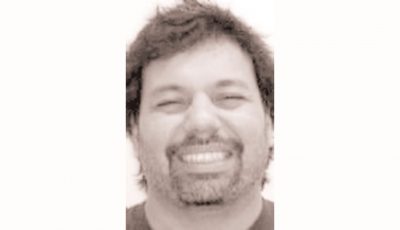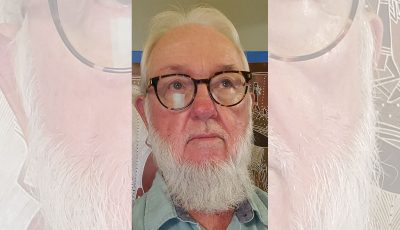SHARING HER IMMIGRANT STORY
CNMI Bar president Kara, a political refugee at 11
CNMI Bar Association president Maya B. Kara shared her remarkable immigrant story that landed her in New York as a political refugee at age 11 when she and her family escaped to the West from Hungary.
Kara, an immigration lawyer, served as guest speaker during a naturalization ceremony for 19 newest U.S. citizens at the U.S. District Court for the NMI on Friday.

Maya Kara
In her remarks, Kara disclosed that she is an immigrant and that English is her third language.
Kara spent her childhood in Hungary, a small country in central Europe with a population of 10 million. At that time, during the Cold War, Hungary was under the rule of the Soviet Union.
“Life was very difficult. Everyone was afraid of the government and of each other,” she recalled.
Kara said people were arrested and killed without any due process just for saying the wrong thing or criticizing the government.
She remembered that during the student protest movement in 1956 that spread to the whole country, people rose up against the government and against the Soviet occupation.
“Initially, the Russians withdrew and we celebrated our victory and the hope of a better life, a free life. But soon the Russians returned and the people fought the tanks in the streets,” she said.
She recounted women and children like her filling bottles with gasoline to supply the fighters with Molotov cocktails, but they were outnumbered and outgunned.
“Over 2,500 died and 200,000 escaped to the West, my family among them,” she said.
Kara disclosed that her father was on a death list as he was a commander of a sector of the city, and that all his comrades who didn’t escape were arrested and shot.
Kara arrived as a political refugee in New York at 11 and became a U.S. citizen at 18.
She said that people come to America in hopes of a better life and this hasn’t changed in the last 238 years. She said many come for economic opportunity, others come to avoid persecution, some come to become members of a democratic society, and some come simply to have peace and security.
Because she is an immigrant as well as U.S. citizen, Kara has both an outsider’s and insider’s perspective on life in America.
To her, the American character is defined by certain qualities such as independence and self-reliance, egalitarianism and fairness, and rule of law.
Kara said the rule of law is embedded in the American legal and political system.
“The Constitution, not individuals, governs the country. No one, not even the President, is above the law. Power ultimately rests in the voters,” she said.
Kara cited the 2000 presidential election, in which Al Gore won the popular vote but the electoral vote was unclear because of ballot counting issues in Florida. She said whoever won in Florida would be the next president so the country waited for over a month for an outcome and the case was sent to the U.S. Supreme Court, which later ruled that George W. Bush was the winner.
Kara said half of the voters, in a country of over 300 million people, who had voted for Al Gore were disappointed and furious. Various forms of misconduct and impropriety were alleged. In many other countries, there would have been violent protests on the streets, confrontations between the police and civilian populations; there would likely have been armed insurrection, possibly civil war.
“But in the U.S., life went on. People respected the process even if they disliked the result,” she pointed out.
Kara congratulated the 19 newest U.S. citizens, who are “embarking on a new life for themselves and for their children and children’s children.”
“I know you will each contribute your individual special talents to your new country. And that is what makes the United States of America so great!” she told the new citizens.



























